
The Art of Trust: How Mindfulness Unlocks Deeper Connections and Personal Growth
The Unseen Pillar of Mindfulness: Cultivating Trust in an Uncertain World
In our relentless pursuit of control, we often find ourselves battling a current of anxiety and uncertainty. We meticulously plan our careers, manage our finances, and organize our lives, yet a deep-seated sense of unease can persist. This is where mindfulness enters the conversation, not merely as a buzzword for stress reduction, but as a profound practice for transforming our relationship with life itself. While many associate mindfulness with focus and present-moment awareness, a crucial, often-overlooked pillar supports its entire structure: trust. This isn’t blind faith, but a cultivated belief in our own intuition, in the natural unfolding of processes, and in the inherent strength of genuine human connection. By learning to let go of the rigid need for control, we open ourselves to a more authentic and resilient way of living. This article explores the transformative power of trust within the framework of mindfulness, delving into its psychological benefits, practical applications, and the actionable steps you can take to integrate this powerful principle into every facet of your life, from your Mental Health to your Financial Planning.
Section 1: Deconstructing Mindfulness and the Principle of Trust
At its core, mindfulness is the practice of paying attention to the present moment on purpose and without judgment. It’s about observing your thoughts, feelings, and bodily sensations as they arise, not to change them, but simply to be aware of them. This practice is built on several key attitudes, including patience, non-striving, acceptance, and letting go. However, the unifying thread that weaves these attitudes together is trust. In the context of mindfulness, trust operates on multiple levels, forming a foundation for authentic self-awareness and interaction with the world.
What is Mindful Trust?
Mindful trust is not about naively believing everything will be perfect. Instead, it is a courageous commitment to three core areas:
- Trust in Yourself: This involves honoring your inner wisdom and intuition. Years of social conditioning and self-criticism can drown out this internal voice. Mindfulness practice helps quiet the external noise and the internal chatter, allowing you to reconnect with your authentic feelings and values. It’s about believing that you have the inner resources to handle life’s challenges, even when you don’t have all the answers. This is a cornerstone of Personal Development and Self-Improvement.
- Trust in the Process: Life is inherently unpredictable. We can’t control every outcome. Trusting the process means accepting this uncertainty and flowing with life’s rhythm rather than fighting against it. It’s the understanding that setbacks can be learning opportunities and that growth often occurs in periods of discomfort. Whether it’s a complex DIY Project at home or navigating a career transition, trusting the process reduces anxiety and fosters resilience.
- Trust in Others: This is perhaps the most challenging aspect. Mindful trust encourages us to see the good in others and to approach relationships with an open heart. It involves recognizing that vulnerability is not a weakness but a bridge to deeper, more meaningful connections. By letting go of suspicion and the need to protect ourselves excessively, we create space for empathy and genuine collaboration, which is vital in Family Life, friendships, and professional settings.
This framework moves mindfulness from a passive observation technique to an active engagement with life. It becomes a tool for navigating complexity with grace, fostering a sense of inner security that isn’t dependent on external circumstances. This shift has profound implications for everything from Stress Management to leadership effectiveness.
Section 2: The Science of Letting Go: Psychological and Neurological Shifts
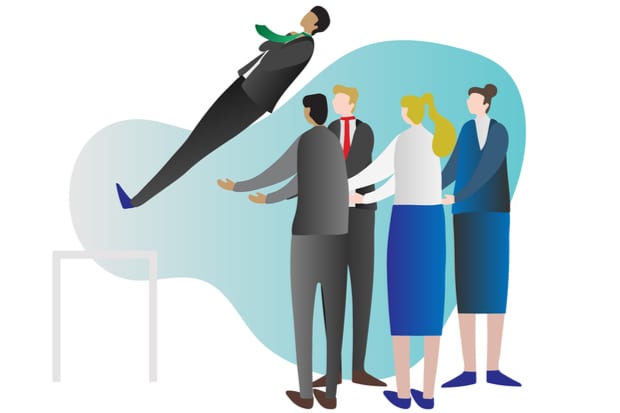
The call to “let go and trust” can sound abstract, but it is rooted in tangible changes within our brains and psychological states. Neuroscientific research on mindfulness and meditation provides compelling evidence for how these practices reshape our neural pathways, directly impacting our capacity for trust and emotional regulation.
Rewiring the Brain for Trust and Empathy
Chronic stress and anxiety often correlate with a hyperactive amygdala—the brain’s “threat detector”—and a less active prefrontal cortex (PFC), which is responsible for rational thinking and impulse control. This imbalance keeps us in a state of high alert, making it difficult to trust ourselves or others.
Mindfulness practices, particularly meditation, have been shown to reverse this pattern. A landmark 2011 study from Harvard-affiliated researchers at Massachusetts General Hospital found that just eight weeks of mindfulness meditation could physically alter the brain. MRI scans revealed a decrease in gray matter density in the amygdala, suggesting a reduction in the brain’s stress response. Simultaneously, they observed an increase in gray matter in the PFC and the hippocampus, areas associated with self-awareness, compassion, and learning.
This neurological shift has direct behavioral consequences:
- Reduced Paranoia and Hyper-vigilance: A calmer amygdala means we are less likely to interpret neutral situations as threatening. This is crucial for building trust in relationships and professional environments, improving Work-Life Balance by reducing work-related anxiety.
- Enhanced Empathy: Mindfulness strengthens the temporoparietal junction (TPJ), a brain region critical for empathy and understanding others’ perspectives. This biological change supports the development of deeper, more authentic connections.
- Improved Emotional Regulation: A stronger PFC allows us to observe our emotions without being hijacked by them. We can acknowledge fear or doubt without letting it dictate our actions, enabling us to take calculated risks and be vulnerable. This skill is invaluable for everything from making sound investment decisions (Investment News) to navigating difficult conversations in Parenting Tips.
By understanding this science, we can see that cultivating trust through mindfulness is not just a philosophical exercise; it’s a form of mental training with measurable biological outcomes. It’s a practical tool for improving our overall Health & Wellness.
Section 3: Trust in Action: Real-World Applications of Mindfulness
The true value of mindfulness lies in its application to the messy, beautiful reality of our daily lives. Cultivating trust through this practice can revolutionize how we lead, love, and live. It can even influence our approach to our physical environment and personal habits, fostering a more intentional and peaceful existence.
Case Study 1: The Mindful Leader
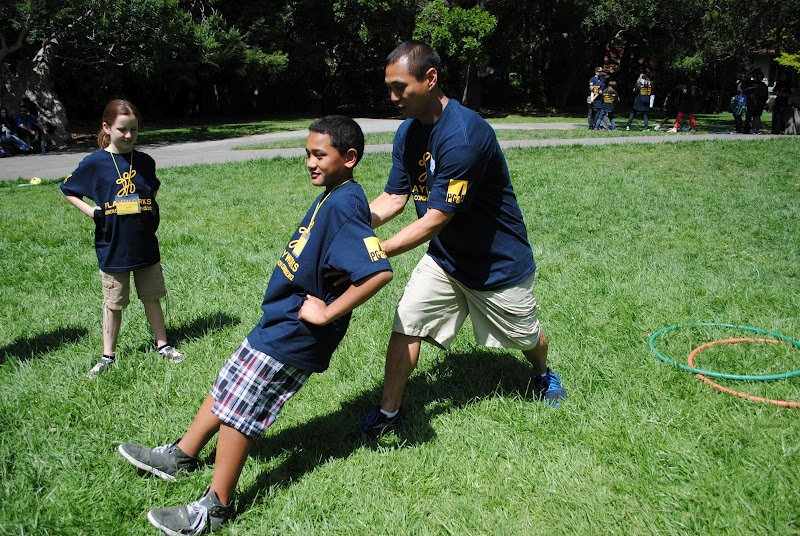
Consider a manager, Sarah, who leads a team in a fast-paced tech company. Previously, she was a micromanager, constantly checking on progress and fearing mistakes. This created a culture of anxiety and stifled creativity. After incorporating a daily 15-minute mindfulness practice, she began to change. By observing her own anxieties without judgment, she realized her need for control stemmed from a fear of failure. She started practicing mindful trust.
- Application: Instead of dictating every step of a project, she clearly defined the goal and then trusted her team to find the best path. She started holding “mindful meetings,” beginning with one minute of silence to help everyone become present.
- Outcome: Her team’s engagement soared. By showing trust, she received it in return. Team members felt empowered to innovate, and collaboration improved. Sarah found her Productivity Tips were less about “hacks” and more about fostering a healthy environment. Her leadership became more effective, and she reported a significant decrease in her own stress levels, directly impacting her Sleep Health.
Case Study 2: Transforming Home and Habits
Mark and his family felt overwhelmed by clutter and constant consumerism. Their home was a source of stress, not sanctuary. They decided to apply mindfulness principles to their lifestyle, connecting the practice to Home Improvement and Sustainable Living.
- Application: They began practicing mindful consumption. Before buying something new, they would pause and ask: “Is this a genuine need? Will this add value to our lives?” This practice extended to their diet, where they focused on Healthy Recipes and mindful eating. They applied the principle of “letting go” to their physical possessions through a process of Decluttering, trusting that they had enough.
- Outcome: Their home became a calmer, more organized space, reflecting a shift in their Interior Design philosophy toward Minimalism. This reduced financial pressure, making it easier to follow their Budget Tips. The family found that by trusting in “enough,” they not only improved their finances but also their connection to each other, spending more quality time on shared hobbies like Urban Gardening and volunteering, enhancing their sense of Community Living.
Case Study 3: Deepening Personal Relationships
In personal relationships, a lack of trust often manifests as jealousy, suspicion, or emotional walls. Mindfulness offers a path to break these cycles. By trusting in your own worth and your ability to handle emotional vulnerability, you can engage with others more openly. Mindful listening—giving someone your full, non-judgmental attention—is a powerful act of trust and respect. It communicates that you value their perspective, which fosters intimacy and resolves conflicts more effectively, a key piece of advice for both romantic Relationships and Parenting Tips.
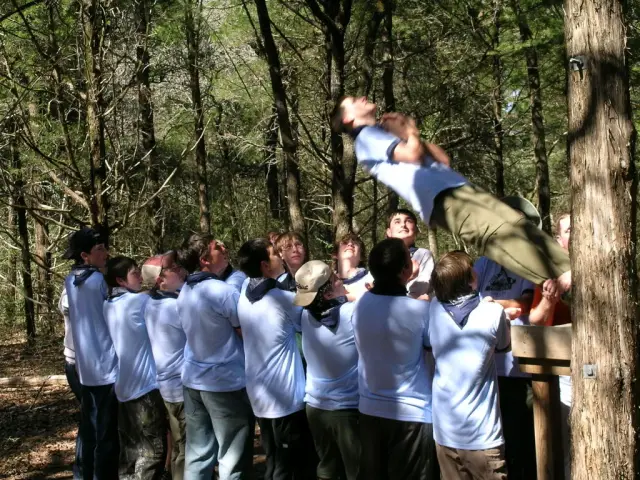
Section 4: Recommendations, Best Practices, and Pitfalls
Integrating mindful trust into your life is a gradual process that requires patience and consistent practice. It’s not about achieving a perfect state of zen but about gently guiding yourself back to a place of awareness and trust, moment by moment.
Best Practices for Cultivating Mindful Trust
- Start with Small, Consistent Practice: You don’t need to meditate for an hour a day. Begin with 5-10 minutes of guided meditation using an app or online resource. The key is consistency. This daily check-in builds the muscle of self-awareness.
- Practice Loving-Kindness Meditation: This specific practice involves directing well-wishes toward yourself and others. It is incredibly effective at breaking down internal barriers of self-criticism and fostering empathy, directly cultivating trust.
- Engage in Mindful Movement: Practices like yoga or even a slow, deliberate walk can connect you to your body. Trusting your body’s signals and limits is a fundamental step in building overall self-trust. Keep an eye on Yoga News for inspiration.
- Notice “Trust” in Daily Actions: Acknowledge small moments of trust throughout your day. Trusting that your car will start, that a colleague will complete their task, or that a recipe will turn out well. Recognizing these small acts reinforces the brain’s capacity for trust.
Common Pitfalls to Avoid
- Confusing Trust with Passivity: Mindful trust is not about abdicating responsibility. It’s about taking wise action from a place of clarity and intuition, rather than from a place of fear and control.
- Expecting Instant Results: Rewiring years of conditioning takes time. Some days you will feel more trusting than others. The practice is to notice these fluctuations without judgment.
- Spiritual Bypassing: Be wary of using mindfulness to avoid difficult emotions. True trust involves having faith in your ability to sit with discomfort and process challenging feelings, not ignore them.
- Trying Too Hard: Mindfulness is about allowing, not forcing. If you find yourself striving for a “perfect” state of trust, gently let go of that goal and return your focus to your breath.
Conclusion: The Quiet Revolution of Trust
Mindfulness is far more than a technique for managing the stresses of modern life; it is a pathway to a more authentic and connected existence. At its heart lies the principle of trust—a courageous willingness to believe in our own inner wisdom, to flow with the unpredictable currents of life, and to open ourselves to the profound potential of human connection. By rewiring our brains to favor empathy over anxiety and presence over control, we unlock a more resilient and joyful way of being. The journey begins with a single, conscious breath and the gentle intention to trust. As you integrate this practice, you’ll find its benefits ripple outward, enhancing your leadership, deepening your relationships, and transforming your daily life into a more peaceful and meaningful experience.
You may also like
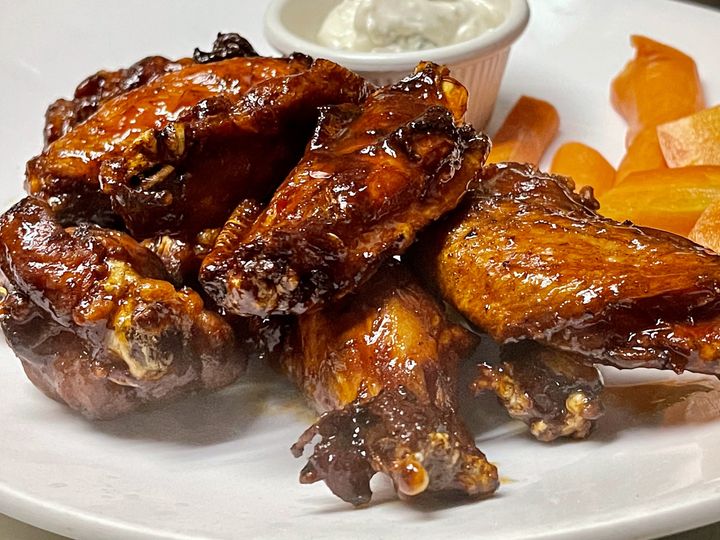
Cauliflower Wings That Actually Crunch: A Stress Test
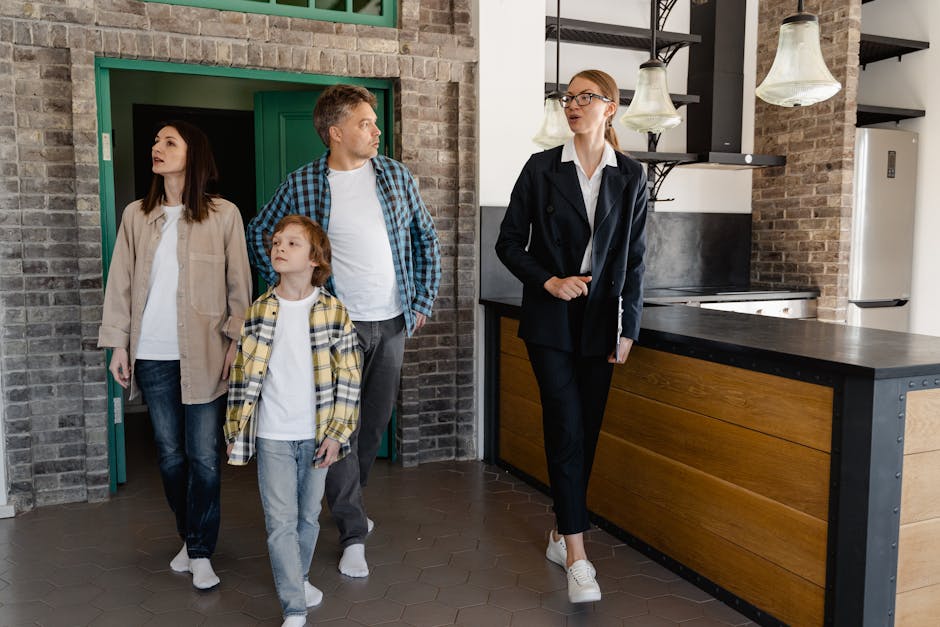
Your Smart Home Shouldn’t Look Like a Best Buy
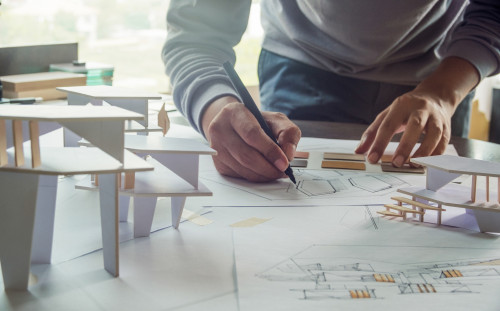
Archives
- February 2026
- January 2026
- December 2025
- November 2025
- October 2025
- September 2025
- August 2025
- July 2025
- June 2025
- May 2025
- April 2025
- March 2025
- February 2025
- January 2024
- October 2023
- September 2023
- August 2023
- July 2023
- June 2023
- May 2023
- April 2023
- March 2023
- February 2023
- January 2023
- December 2022
- November 2022
- October 2022
- September 2022
- August 2022
- June 2022
- May 2022
- April 2022
- March 2022
- January 2022
- December 2021
- November 2021
- October 2021
- August 2021
- November 2020
- July 2020
- May 2020
- April 2020
- March 2020
- August 2018
- July 2018
- June 2018
- April 2018
- March 2018
Categories
- Aftercare Procedures
- Age Groups
- AI/ML
- Alternative Medicine
- Ambient Computing
- Animal Health
- Animal Husbandry
- Animals
- Anti-Aging
- Architectural Design
- Art And Technology
- Auditory Science
- Augmented Reality
- Automation
- Babies
- Baby
- Beauty & Skincare
- Beauty Industry
- Biohacking
- Biomechanics
- Book Reviews
- Breastfeeding
- Budgeting
- Budgeting Strategies
- Business
- Cardiovascular Health
- Career Advice
- Career Development
- Career Growth
- Cats
- Chess
- Chronobeauty
- Circular Economy
- Civic Technology
- Cleaning Tips
- Cloud Computing
- Cognitive Health
- Cognitive Performance
- Cognitive Science
- Community
- Community Building
- Community Engagement
- Community Living
- Computer Vision
- Consumer Guides
- Consumer Trends
- Container Gardening
- Content Analysis
- Content Non-Technical
- Content Strategy
- Cooking Techniques
- Cosmetic Chemistry
- Cultural Events
- Cycling
- Data Analysis
- Data Engineering
- Data Governance
- Data Science
- Database
- Design Psychology
- Design Trends
- Developer Productivity
- Diet
- Diet
- Diet And Nutrition
- Digital Identity
- Digital Media
- Digital Wellbeing
- DIY
- DIY Projects
- Dogs
- Engineering Culture
- Entertainment News
- Environmental Impact
- Environmental Science
- Equity Compensation
- Ethical AI
- Exercise
- Exercise Science
- Exercise Technique
- Exotic Pets
- Fall Gardening
- Family
- Family Health
- Family Life
- Fashion Business
- Fashion Industry
- Fashion News
- Fashion Tech
- Financial Analysis
- Financial Optimization
- Financial Planning
- Flooring Maintenance
- Food
- Food Psychology
- Food Safety
- Food Science
- Food Tech
- Functional Fitness
- Functional Training
- Future Of Work
- Garden Care
- Garden Maintenance
- Gardening Tips
- Geospatial Data
- Gig Economy
- Greece
- Greek
- Greek Food
- Green Technology
- Gymnastics
- Hardware Engineering
- Health
- Health And Wellness
- Health Informatics
- Health Science
- Health Tech
- Health Technology
- Healthcare
- Healthcare Management
- Healthy Eating
- Healthy Recipes
- Holistic Health
- Holistic Wellness
- Home & Living
- Home Decor
- Home Financing
- Home Health
- Home Improvement
- Home Maintenance
- Home Organization
- Home Styling
- Horticulture
- Household Chemistry
- Identity Management
- Indoor Gardening
- Industrial Design
- Industry Analysis
- Infant Nutrition
- Infrastructure Management
- Ingredient Deep Dive
- Integrative Health
- Integrative Medicine
- Interior Design
- Internet of Things
- Internet of Things (IoT)
- Invalid Request
- Investment Strategies
- Investment Strategy
- IoT
- Kids
- Leadership Development
- Learning Strategies
- Lifestyle
- Lifestyle Brands
- Lifestyle News
- Lifestyle Optimization
- Literary Criticism
- Literature
- Logistics Management
- Machine Learning
- Material Science
- Materials Science
- Meal Planning
- Media Analysis
- Meditation
- Mental Health
- Mental Performance
- Mental Wellness
- Miami
- Miami Food
- Mind And Body
- Minimalism
- Mobile Development
- Neuroscience
- No Applicable Categories
- Nursing
- Nutrition
- Nutrition News
- Open Source
- Operating Systems
- Operational Resilience
- Opinion
- Organization Tips
- Outdoor Living
- Over 40
- Over 50
- Over 60
- Parenting
- Parenting
- Parenting Strategies
- Performance
- Performance Optimization
- Personal Development
- Personal Finance
- Personal Growth
- Personal Productivity
- Pet Care
- Pet Safety
- Philosophy
- Plant Care
- Politics
- Product Formulation
- Productivity
- Productivity Engineering
- Protein
- Psychology
- Psychology of Space
- Quantified Self
- Reading Culture
- Real Estate Investment
- Recipes
- Regulatory Compliance
- Remote Work
- Renovation Planning
- Resource Management
- Respiratory Health
- Responsible Pet Ownership
- Retail Strategy
- Retail Technology
- Robotics
- Science
- Seafood
- Seasonal Gardening
- Security
- Sedentary Health
- Self-Care
- Skincare Science
- Skincare Trends
- Sleep
- Sleep Health
- Smart Home
- Smoothies
- Social Impact
- Soft Skills
- Soil Health
- Spatial Computing
- Spatial Design
- Stress Management
- Supplements
- Sustainability
- Sustainability Science
- Sustainable Engineering
- Sustainable Fashion
- Systems Engineering
- Tax Optimization
- Tax Strategy
- Tech Investment
- Technical Writing
- Testing
- Travel
- Travel News
- Travel Safety
- Travel Tips
- Trend Analysis
- Tropical Plants
- Uncategorized
- Urban Gardening
- Urban Planning
- User Experience
- Veggie
- Vietnam
- Virtual Events
- Volunteering
- Wealth Management
- Wearable Technology
- Web Development
- Wellness
- Wellness Technology
- Winter Gardening
- Work-Life Balance
- Workplace Culture
- Workspace Setup
- World
- Writing
- Writing Skills
- Year In Review
- Yoga
- Yoga News
- Zero Waste

Leave a Reply